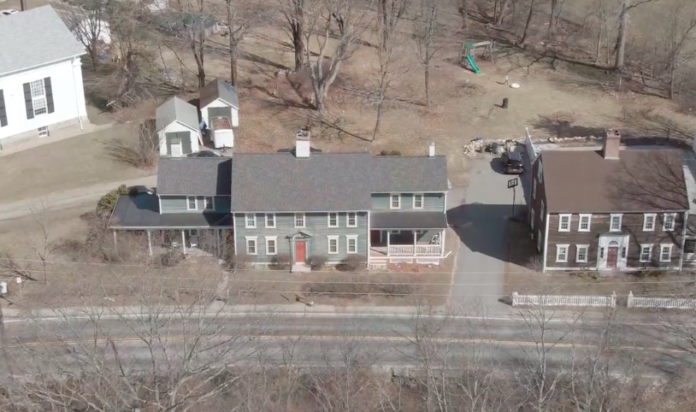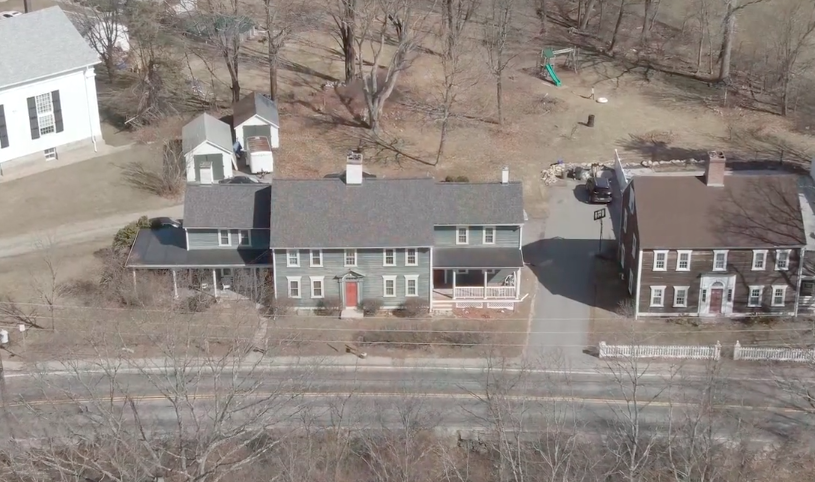
NORTH SMITHFIELD – His philanthropy ultimately contributed to the education of the likes of Thurgood Marshall and Martin Luther King, but his connection to the village of Slatersville has remained mostly unknown.
John Fox Slater created a fund for the education of newly emancipated slaves in 1882, money that was used to help establish more than 40 historically black institutes, colleges and universities across the country.
Slater’s story was told during a prescreening of a docu-series on the village of Slatersville, offered online this week by the Slater Memorial Museum at Norwich Free Academy. Around 60 people attended the free, virtual event, which included a brief introduction with commentary by director Christian de Rezendes.
“No one in my village has heard of him,” de Rezendes told the group, adding that the purpose of including the story – based far away from America’s first planned mill vIllage, was, “not just to honor what John Fox did, but also to acknowledge that the family that stayed in Slatersville handled things very badly.”
“There are many sides to John Fox Slater,” said Dayne Rugh, interim director of the Slater Memorial Museum. “There are many things we know about him, and there are many we don’t.”
“The theme of education is so incredibly important to the story of John Fox Slater and what he did before he passed away,” Rugh said.
Born in Slatersville as one of John Slater Sr.’s 11 children, Fox Slater was sent to Connecticut to supervise one of the family mills in the neighboring state at the age of 17.
The documentary points to the inherent contradiction of the successful businessman, a self-proclaimed abolitionist who built his wealth in the mid-19th century by means dependent on the existence of slavery. And it notes that Slatersville was home to one of many mills in Rhode Island involved in the production of, “negro cloth,” subpar, stiff garments sold to clothe southern slaves.
“Not all of his family members were on the same page,” de Rezendes notes in a voiceover during the roughly 30-minute long clip.
Fox Slater’s cousin – the son of Samuel Slater who also shared the John Slater name and lived in Slatersville – was an outspoken anti-abolitionist.
Still, in July of 1882, Fox Slater established the Fund for the Education of Freedmen, setting aside $1 million for education of newly emancipated slaves – the equivalent of about $25,600,000 today, according to the piece.
The list of colleges and universities – and prominent graduates that they later produced – established with Fox Slater’s charitable act is long and impressive. There’s civil rights leader Martin Luther King, Jr., a graduate from Morehouse University, which was funded by the John Fox Slater Fund. Thurgood Marshall, the first black justice on the Supreme Court, was educated at the Slater-funded Howard University. More recently, filmmaker Spike Lee was also a graduate from Morehouse, and Vice President Kamala Harris, a graduate of Howard.
The prescreening was one of seven such mini-episodes, released in advance of the full 8 episode series, scheduled to premiere on Rhode Island PBS next year. Like the others, the detailed piece told the tale via interviews with historians, including descendants of the Slater family, with the help of historical documents.
It told of a history closely tied to the museum, which was established by Fox Slater’s son after his death as a tribute to his work.
“It’s really remarkable,” said Rugh following the presentation. “I’m almost at a loss for words.”
The complete video, presented on Wednesday, March 24, can be viewed here.








